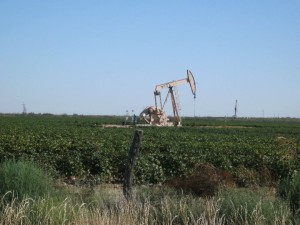Question: I own property in Texas. How can I find out whether I own the mineral rights as well?
Answer:
Without question, this is one of the most common questions I am asked by Texas landowners. As the question notes, in Texas, mineral ownership can be (and often is) severed from surface ownership. Oftentimes these severances occurred several generations ago, leaving current owners unsure of their ownership status. Further complicating the issue is the fact that ownership of mineral rights may be divided in a number of ways, including by percentage or by certain rights.
Unfortunately, determining whether a surface owner has any portion of ownership of the mineral estate may be an extremely difficult (and expensive) task. Here are several options for landowners to consider:
First, if there is an oil or gas company seeking a lease on the property or that already has one in place, the landowner can request a copy of the title research done on the minerals. Some oil and gas companies are willing to share this information, while others are not. It is worth asking the question, particularly if the landowner and oil and gas company could end up in negotiations to lease the minerals at issue. Some mineral owners have included provisions in oil and gas leases that require the lessee to proveide a copy of pages from the title opinion that reflect the mineral owners’ interest. Similarly, if you are receiving a royalty check or previously received a copy of a division order, your percentage mineral ownership may be reflected on these documents.
Second, a landowner should review the title insurance policy he or she got when purchasing the property. Unfortunately, most title companies no longer opine as to mineral ownership as it is quite time consuming to do the research and could result in a high level of risk to the insurer if a mistake was made. Nevertheless, checking to see if the title policy does mention mineral ownership is a good idea. Historical oil and gas leases should be reflected on the report. If your immediate predecessor in title is listed as a lessor, that indicates they held minerals prior to the sale to you. If your immediate predecessor owned some portion of mineral rights and did not expressly reserve those rights, they passed with the sale of the property.
Third, a landowner could do a deed record search on his or her own. This option may sound good in theory, but sorting through deed records to determine when, if, and how minerals may have been reserved or severed decades ago is a very complex process. In order to determine ownership, the chain of title has to be traced back to ensure that there were no mineral rights ever reserved or severed, which can be extremely time consuming and often proves difficult for even experienced oil and gas attorneys.
Fourth, a landowner could seek to hire a landman to conduct the title research. Landmen spend their days in the courthouse researching deeds and records to determine mineral ownership. They are experience and typically very efficient. It may be difficult to find a landman willing and able to do this for a couple of reasons. First, many good landmen work for oil and gas companies exclusively, meaning they are usually paid quite well and extremely busy. Second, many landmen are leery of working for individual landowners because oftentimes landowners do not understand the complexity of the research or the time and money it may cost to get an answer, leaving the landowner upset when a bill arrives. If, however, a landowner can find a landman willing to do the title search, this can be a good option.
Fifth, the landowner can hire an attorney to conduct the title research. Of course, as with most situations that involve hiring legal counsel, this option can be quite expensive depending on the complexity of the title documents at issue. Be sure to ask an attorney for an up front estimate of what the cost might be to make a title determination and ensure that payment terms are understood and agreed upon prior to the attorney beginning work.













